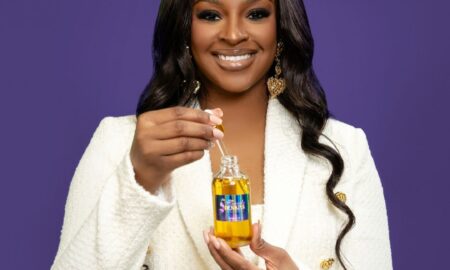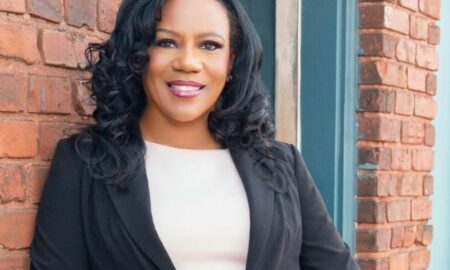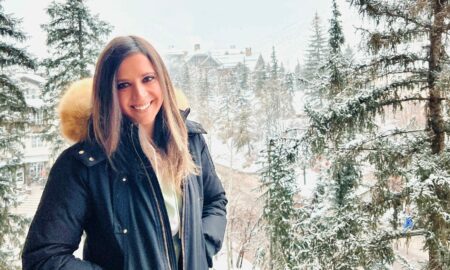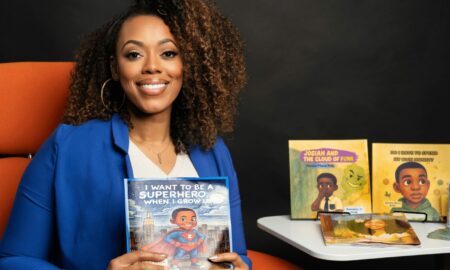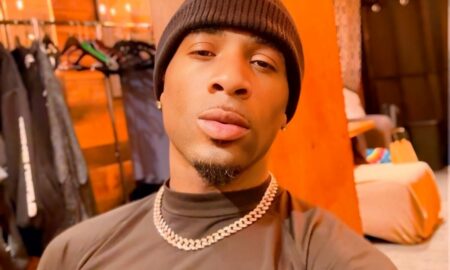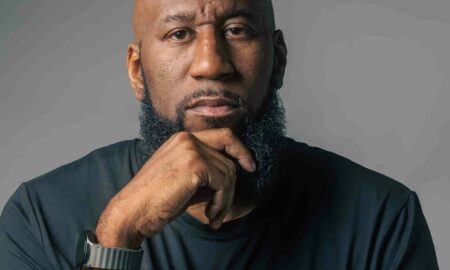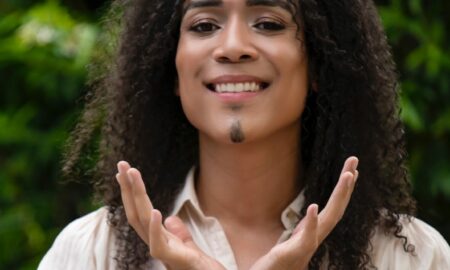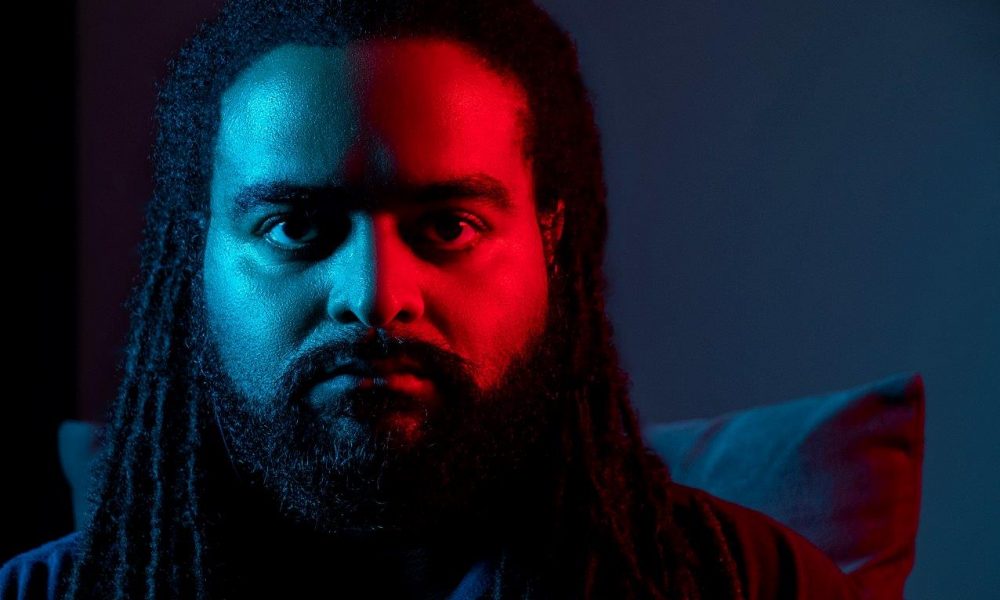

Today we’d like to introduce you to Luis Rodríguez.
Thanks for sharing your story with us Luis. So, let’s start at the beginning and we can move on from there.
I was born in the Dominican Republic in 1986 and moved to Newark, NJ when I was six. I always wanted to work in the television and film industry. I recall watching a TV show called “Movie Magic” when I was around eight years old. The show was about the behind-the-scenes of how Hollywood movies were made, with sneak peeks at how the visual and special effects were done. Everything from simple in-camera tricks to pyrotechnics to computer-generated images like the T-Rex in “Jurassic Park.” Yes, the dinosaur was physically built, but a lot of it was computer generated imagery. I was astounded to find out that in some of those amazing scenes, the dinosaur wasn’t actually there. As a child, at birthday parties and family weddings, I just wanted to play with my cousins – but the adults had other plans! Starting around age 10, video camera duty fell to me. Years passed and I forgot about my love of TV and film – and even about shooting the home movies at all those family parties. It wasn’t until college that my love for television and film was reignited.
I re-entered the world of TV when I helped my friend Ramon with a project for his video production class. I didn’t even know that Bloomfield College, located in New Jersey, offered Video Production as a major. Ramon told me that he needed actors and asked me to be the villain of a James Bond-like short film. If it was anyone else, I would have said no, but since he was my friend, I agreed. I had a lot of fun doing the project – so much so, that I decided to add Video Production as my second major. Many of the courses overlapped with my Multimedia major, allowing me to take video classes while still fulfilling the requirements for both degrees. Win-win. Over the next few years of my college career, I created videos on a variety of topics. Along with Ramon and two other talented students studying journalism, I became a founding member of our school’s first official campus news channel, “Bloombox TV.”
In the Fall of 2009, Ramon, our friend Jose, and I teamed up for our senior thesis project. It took a full academic year to create; the workload was so heavy that we had assistance from several other students. We operated as an actual production team. The project was a short film called “G.L.I.T.CH.,” where I did most of the visual effects and some of the camera work. The project was completed in Spring 2010; we worked on it until, quite literally, the last minute – I had to sprint across campus and submitted it moments before the deadline. After we presented it that night, I was on a high and I really could visualize myself pursuing work in the TV/Film industry and being successful. My thesis was complete, but as a double major, I had a year of schooling left and graduated Spring 2011.
In my last semester, I interned at a production company in New York City, which led to a job offer as an Associate Producer when I graduated that May. I had the opportunity to work with many high-end entertainment companies, celebrities and public figures, including Beyoncé, Elton John, Bon Jovi & Alicia Keys. By the end of my time there, I had a demo reel and resume that was impressive for someone just three years out of college. I don’t want to paint too rosy of a picture though – the work was so stressful that for a time I seriously contemplated leaving television production. Whenever I heard the custom ringer for my boss’ emails (the alert sound from “Metal Gear Solid”), I would almost start hyperventilating with dread. Part of the stress was because it was just the owner and I running the company. You name it, I did it – creating budgets for multimillion-dollar productions; hiring vendors, video crews, lighting technicians & set builders; managing expenses etc. I stuck with it though and realized that, in addition to creative and editing & production, I was pretty good at the different aspects of running this type of business. The owner would subcontract me to do the smaller jobs he didn’t want to take – that’s when it clicked in my head that I could have my own production company one day. Business slowed down in 2013 and I lost my job. I didn’t have time to sit and mope, so I immediately sent out job applications, and was subcontracted at another small-business called D-Scape. I created video training modules, such as employee onboarding or new policies, for different companies. During my time there, one of my colleagues was Tim Jacobus, the original cover illustrator for the Goosebumps book series (keep this in mind, as it becomes important later). Unfortunately, I lost that job in March 2014 and became miserable again. I sent out my resume, started taking on my own clients, bought a camera and got a temp job at a financial firm in Jersey City. Establishing a name for yourself is a slow and tedious process, but I kept putting myself out there.
Sometime during this process, I picked up a book called “Producer.” The author was Wendy Walker, the producer of CNN’s “Larry King Tonight,” a woman who had over 30 years of experience in the television industry. At the time, because I was unemployed & having a hard time getting clients, I once again considered leaving TV/Film – but the book reinvigorated me. Reading her experiences and learning about her struggles & triumphs made me realize that I did want to continue working in television. I decided that the best way to do that would be to continue building my client base and working a 9-to-5 – so I kept up the search, with mixed results. By the time I finished the book, CNN had become my dream company. I made up my mind that I would work there and started applying for jobs, while also starting the processing of making my business official.
The first half of 2014, I’d be up until 3 or 4am, sending out over 200 resumes looking for a 9-to-5; contacting over 400 clients to build my clientele; and applying for a few dozen positions at CNN. In between, I somehow managed to find time to eat and sleep. My family and social life suffered; my cousin Jonathan, who is like a brother to me, would ask to hang out, but I wasn’t able to find the time. I picked up a few clients, shot a few weddings, did graphic design & edited videos – but nothing was ever steady. Eventually, I was contacted by a recruiter at CNN who liked my resume. At the end of our call, she told me that the job was in Atlanta, at the CNN headquarters. I was vaguely aware that Atlanta was slowly becoming a little Hollywood, with movies and TV shows like “The Walking Dead” being filmed there. It sounded like the perfect opportunity – I’d be working at my dream company & building my own video production in a place that was booming in the TV/Film industry.
On May 29th, I was offered the CNN position and told the recruiter I could start as soon as they needed me – my starting date was Monday, June 16th. I had just two and a half weeks to figure out how to overcome some major obstacles; primarily, affording the move when I wasn’t financially sound to a place where I didn’t know anyone. My family was unable to help me, so I started applying for credit cards and loans online and in person at banks. I’d bring a printout of the email with the job offer and income, practically begging to get approved, but was turned down by most banks. With all the credit card inquiries, my credit score took a hit – and I still had no way to make the move. Finally, on June 10th, two credit cards came in the mail. I had about $1,800 total, which was just enough. However, I only had six days to find a place to live and get a transport company to ship my car, because it wasn’t able to survive the 800-mile drive. It occurred to me to utilize an untapped network – my fraternity, Lambda Sigma Upsilon Latino Fraternity Incorporated. Hoping that there were brothers in Georgia, I posted in our private Facebook group, explaining that I needed a place to stay for a few months – and a brother I had never met before, Giovanni, immediately offered to help me.
The Wednesday before I started – which was also my last day at the financial firm – I managed to get a shipping company to pick up my car, to be delivered at Giovanni’s house by Friday. I booked the earliest possible flight to beat the car to Atlanta. This was good news – but I also had to contend with my family being sad that I was leaving. Afro-Latinos have strong family ties, but I couldn’t stop to process that with them, because there was so little time. I flew out on Friday and met Giovanni for the first time when I got to his door. The way he welcomed me into his home unconditionally was something I’ve never experienced before. That was one of the main factors that allowed me to make the move – I was ready to sleep in my car, but his generosity prevented that. I owe him everything.
After living with Giovanni for a few months, I moved into my own place and settled in. Now that I was working at my dream company doing work that I loved, I could focus on creating my business – this included building my own website and things I had never done before, like registering my business as an LLC. I was literally learning as I went along. After Polymath Productions was up and running, it was easier to pick up clients and buy equipment. Within a few months, I was shooting music videos for several local Atlanta musicians & doing photoshoots for Home Depot, Sneaker Con & my first boss out of college, while several of my fraternity brothers and sorority sisters became clients too. Things immediately picked up – over the next year and a half, I had seven new clients.
2015 was a great year. The Goosebumps movie was being released in October & I immediately thought of producing a short video on Tim Jacobus, the book cover artist of the original series that I worked with at D-Scape (see – I told you it was relevant 😏). The video wasn’t for a client, but rather for my personal reel. Using the skills I developed working as an Associate Producer in NYC, I created a budget and started brainstorming. Tim lived in New Jersey, so the budgeting and logistics included allocating travel funds, hiring a second camera operator, coordinating with Tim for the interview and setting up the pre-interview. I scheduled the interview for when I had time off from CNN and flew to NJ with my camera and huge light kit. I hired my senior thesis project partner Ramon, as I knew the interview would go smooth if we worked together. The interview turned out even better than I expected – so good, in fact, that I pitched it to CNN. They loved it and posted it on their website the day the movie came out, as did their sister network HLN, who let me write an article on it. I was beyond thrilled – a video produced by Polymath Productions made it to the CNN website. It was the highlight of my year.
Over the next four years, my business grew; from 2016 to 2019, I signed contracts with 45 clients. I still made most of my income through my regular job at CNN, but with a semi-fixed schedule, it was easy to manage setting up time working for my clients.
Outside of standard work such as shooting interviews, product photography and video editing, another project I worked on was a product design for a lip exfoliating brush. I worked many long hours with the engineer who contracted me, but it was all worth it to see, for the first time, a product design of mine was brought to life through the manufacturing process. The engineer – a fraternity brother – gifted me one of the brushes; I keep it on a shelf, along with mementos of other projects.
In 2019, two projects stood out. In the summer, I edited a 30-minute documentary called “Black Space,” which centered around the black experience in America, for a doctoral student from Michigan State University. It took over 80 hours to complete – my editing timeline looked like a game of Tetris with all the layers – but it was a rewarding project. Last fall, Polymath Productions was contracted by an NYC reporter to do camera work and video editing to cover the red-carpet event at Tyler Perry Studios in Atlanta; we interviewed A-Listers such as Samuel L. Jackson, Chris Tucker and Halle Berry.
Due to COVID-19, work has slowed down on the clients’ end; fortunately, I’m financially stable since I still work for CNN.
So, there’s the story of how I got here: many long hours, perseverance & sacrifice, some great friends and the people who trusted me to make their creative visions come true.
Has it been a smooth road?
Ha! Not at all. Feelings of failure over losing jobs; a tight deadline to move out of state & away from my friends and family; starting a business with no experience; and financial concerns, with the added bonus of student loans hanging over my head.
As mentioned before, I struggled working at the production company in New York because the boss was extremely demanding. I was the type of student that didn’t need to work too hard to do well – this experience changed that. When he first made the job offer, my boss said, “TV is hard. It’s stressful. And I’m going to work you into the ground. But I guarantee that, when you leave here, you’ll have the best reel out of all your friends from college.” He was right – I was under a ton of stress, but as the only other full-time employee, I was a part of huge productions and assisted in running the company. Every aspect of those productions had to be perfect, because he had amassed high-profile clients over 20+ years – we were working for some of the biggest names in entertainment. I was just a kid fresh out of college, stepping into this world, so I had to learn – and learn quickly. I eventually got the hang of it, but that didn’t make it any easier, as the budgets got bigger and the clients more frequent.
One challenge I haven’t touched on yet is dealing with my competitors. I had to learn how to balance bidding for a project & ensuring I was paid what I was worth, while also remaining competitive with others who would try to undercut me. There was a sense of defeat every time I drew up an estimated budget for a potential client, only to have them choose someone else. This was especially difficult in the beginning, when I had little experience.
By far though, the biggest obstacle was financial uncertainty. When I accepted CNN’s offer & moved to Atlanta, I took a nearly $6,000 pay cut, as the position was close to entry-level. My mindset was: “Get in and work your way up.” To keep Polymath Productions competitive, I had to buy equipment to increase the production value of my video and photo work. I had other financial worries too, such as large payments on student loans, a car that constantly required expensive repairs, helping my family when they were in need and not having enough clients. It got to a point where, nearly every other month, I was pawning my video equipment to pay rent; the lights, the laptop I edited on, the camera, my green screen. Most of the equipment had been pawned multiple times over the period of a year. There were even times I considered pawning my car title, though luckily, it didn’t come to that. I would even go on Craigslist to buy items people were selling for cheap, so that I could try to flip it and make a quick buck. Things got real when I asked my then-girlfriend to send me money – something I could have never in a million years imagined myself doing. I wouldn’t even ask my father for money and I know he would have moved heaven and earth to give it to me. I couldn’t ask him or my family though, because I didn’t want them to worry that I was having a rough time and that they couldn’t physically or financially be there for me. Plus, this was my own company, my own business that I started – there was a sense of pride in it. Eventually, with the combination of several raises at CNN and even more clients, I never had to resort to pawning things again. I made it through that storm. It was rough, but here I am six years later and Polymath Productions is still thriving.
So let’s switch gears a bit and go into the Polymath Productions story. Tell us more about the business.
The name “Polymath Productions” came to me because I was always a jack-of-all-trades. A polymath, in the traditional sense of the definition, is an individual with knowledge across a wide range of subjects. As such, I’m a one-man band & specialize in many forms of creative art; video production, photography, lighting, photo editing/restoration, graphic design, 3D Modeling, live-action and CGI integration, visual effects, voice overs, storytelling, scriptwriting, storyboarding and English/Spanish translations. If a client needs something that I don’t know how to do myself, I’ll learn it or – if I can’t competently do the task – hire someone who can. The most important thing is ensuring client satisfaction. Also, there is only so much you can do on your own, without spreading yourself too thin by wearing too many hats at once.
This is what sets me apart from others – I’m not a one-trick pony. I can do it all, so as a result, I can offer competitive pricing because I don’t need to spend money on vendors or services. I own all of my own gear, so it’s rare that I need to rent equipment. Often equipment rental as a cost that gets passed on to the client. Not with me. My clients can get a broad range of services without having to spend a ton of money and without needing to sacrifice the quality of the product.
How do you think the industry will change over the next decade?
The sky’s the limit. In the next 5 to 10 years, as technology becomes better, cheaper & more accessible, there’s no telling what could come. One thing is for certain: it’s up to us to constantly adapt to the changing times – and fast. For example – ten years ago, a high-end Hollywood camera cost ~$12,000, just for the body. Today, there are cameras that cost ~$5,000 that are used for multimillion-dollar Netflix specials. I don’t think anyone saw that coming – but it happened. With more people having access to top-tier equipment, there are more storytellers, more visionaries, more possibilities and more competition to create the media we all consume. The future is more professional equipment & platforms in the hands of people who once didn’t have access to them. That accessibility will usher in a new wave of creators and collaborators who can take this industry to new heights.
Contact Info:
- Website: www.polymathproductions.com
- Phone: 862-755-2848
- Email: luis@polymathproductions.com
- Instagram: https://www.instagram.com/polymathproductions/
- Facebook: https://www.facebook.com/PolymathProductionsVideoPhoto/
- Twitter: https://twitter.com/PolymathVidPic






 Image Credit:
Image Credit:
LeRon Garnett, Cheyenne Tyler Jacobs, Ramon L. Ortiz, Danita Chantel
Suggest a story: VoyageATL is built on recommendations from the community; it’s how we uncover hidden gems, so if you or someone you know deserves recognition please let us know here.













